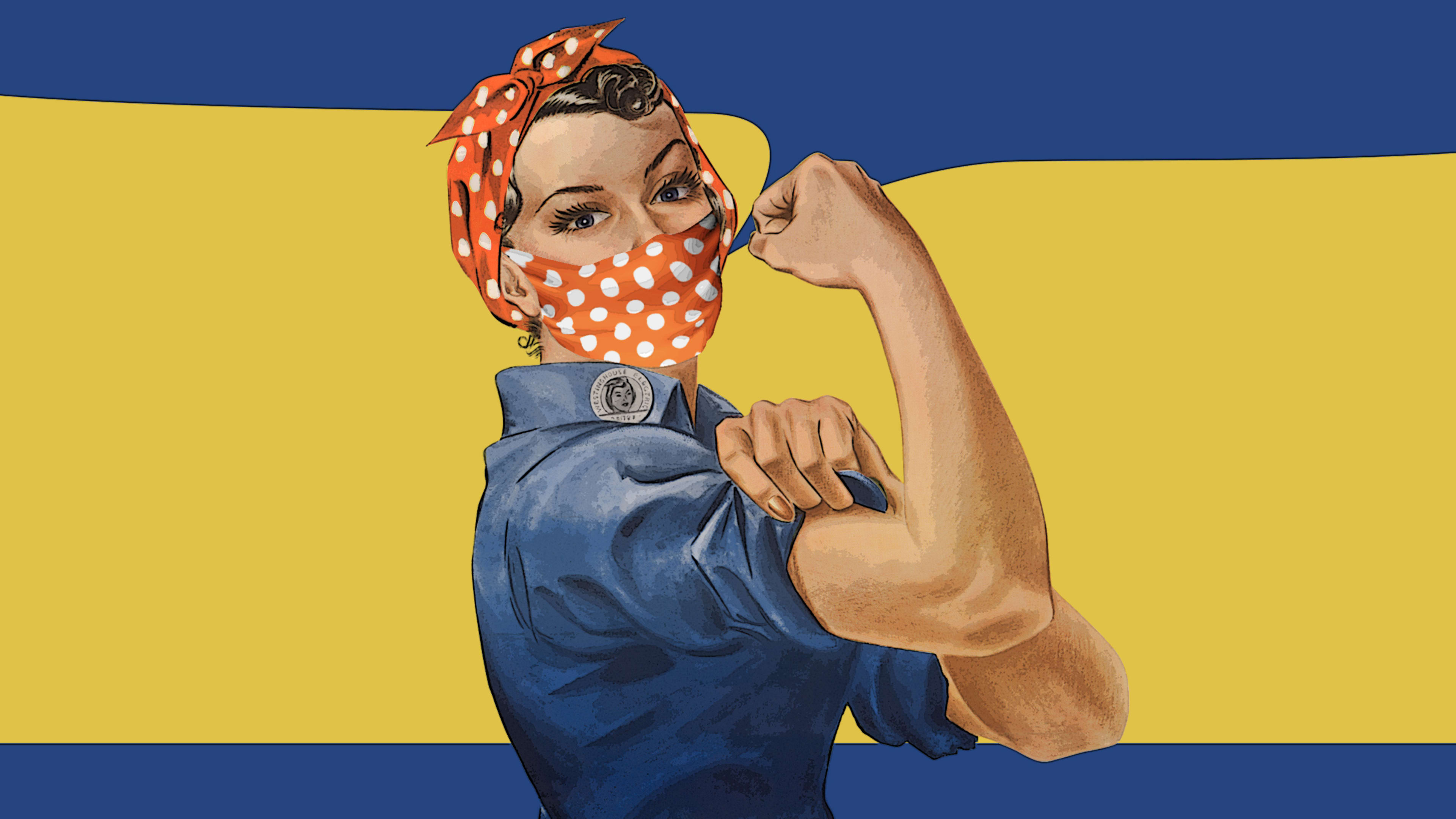During another difficult moment in human history—World War II—women who went to work in factories and shipyards donned scarves on their heads to keep sweat and hair off their faces. These women were represented by the iconic Rosie the Riveter poster, in which a female wartime worker wears a red polka-dot bandana. Now, one of the original Rosies has started making face masks out of that same patterned fabric as part of the fight against COVID-19.
For years, Mae Krier, 94, has been sewing polka-dot bandanas and giving them to the women who lobby with her on Capitol Hill to get Congress to formally recognize the contributions of women who were part of the war effort. When the pandemic arrived in the United States, she put her skills to work to create face mask for family and friends. According to CNN, someone posted on Facebook about her work, and she received an influx of requests for her masks. She has now made 300, but there are over 1,000 more requests to go—and counting.
Krier herself spent the Second World War building war planes at a Boeing factory. Over the past few years, she has been lobbying the Senate to honor the fictional Rosie the Riveter—as a symbol for all the real-life Rosies—with a Congressional Gold Medal which would be displayed at the National Museum of American History. In 2019, the bill was formally introduced into the Senate, but it is currently doesn’t have enough support to pass.
But that may change. Krier’s mask-making initiative has gained a lot of media attention. She’s using the polka-dot masks to remind people of how the United States got through another dark period with the help of women who stepped up when they were needed.
Recognize your brand’s excellence by applying to this year’s Brands That Matter Awards before the early-rate deadline, May 3.
